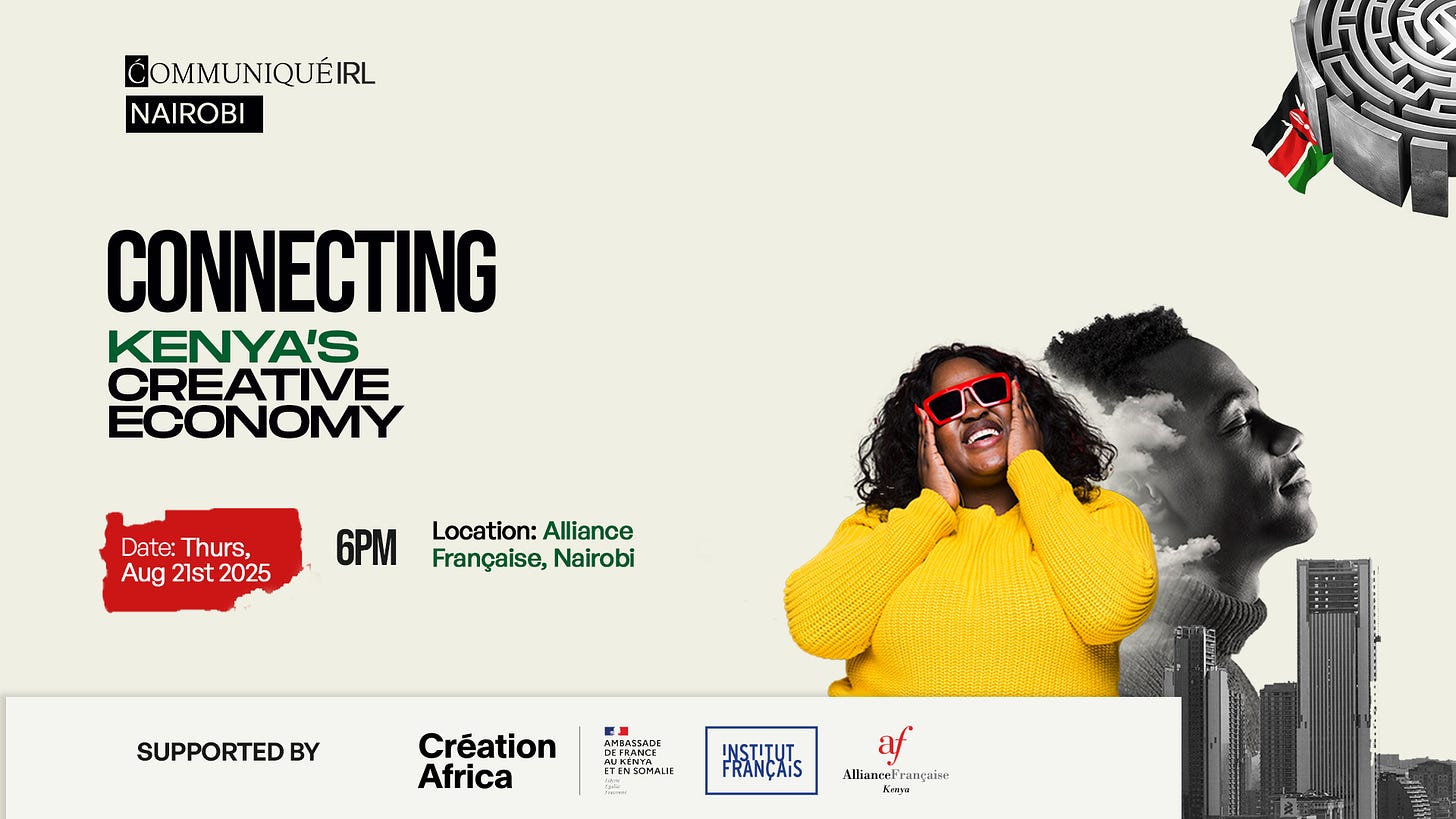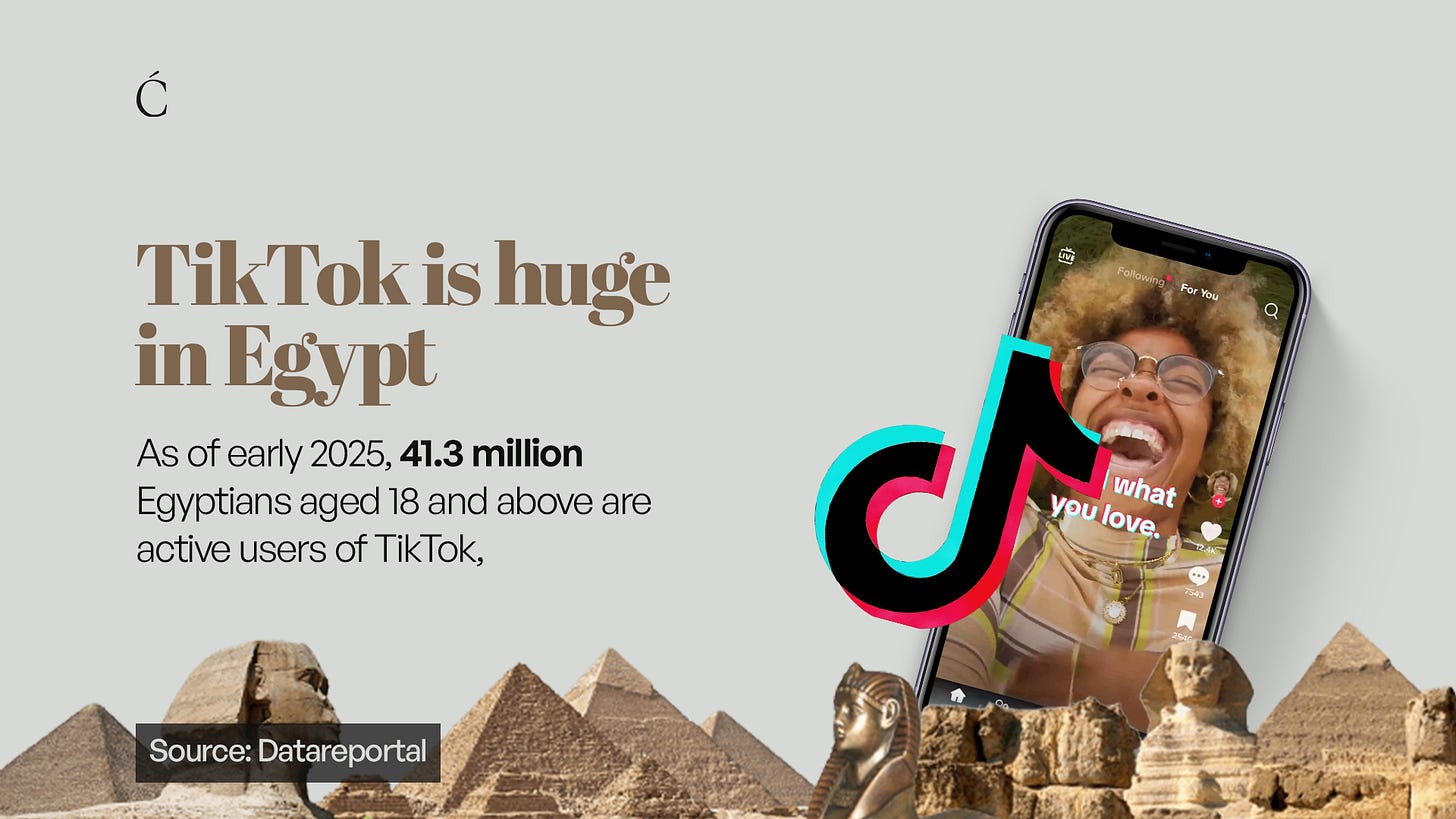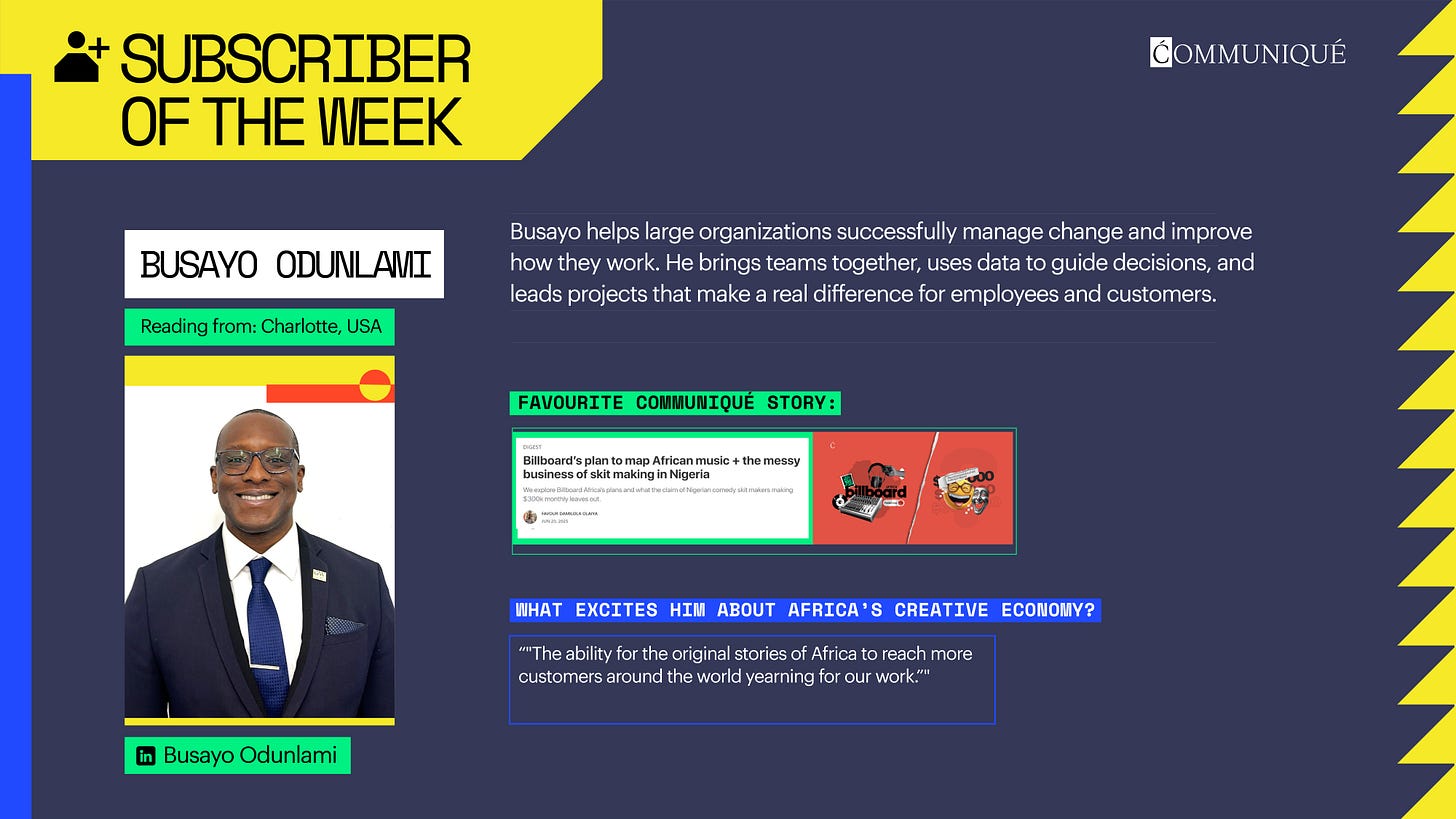DStv’s license on the line in Ghana + Egypt turns up the heat on TikTok
MultiChoice’s pricing play meets state resistance in Ghana, while Egypt leans hard on TikTok to enforce cultural compliance.
Hello there,
ICYMI — the first edition of our new editorial series, Offscript, is landing in your inbox this Sunday (yay!). We announced it last week, but now’s the perfect time to add it to your weekend reading list if it slipped through the cracks.
Now, to today’s digest, here is what we discussed:
Multichoice's latest regulatory woes in Ghana
Egypt’s pushback on TikTok and demands to uphold local cultural norms
Centre Spread 🗞️
MultiChoice risks DStv shutdown in Ghana over price hike dispute
Ghana's National Communications Authority (NCA) has issued a formal notice to MultiChoice Ghana, signalling its intent to suspend its broadcasting licenses following a protracted pricing dispute.
This development comes at the expiration of the seven-day ultimatum the country’s Minister of Communication, Samuel Nartey George, gave the company on August 1 last week to slash prices by 30% or face regulatory action.
The company and government have been in dispute since it hiked the price of Premium access to DStv by 15% in April. George called the hike unjustified and insists that Ghanaians are charged more than consumers in other African markets. He also argued that the increase came when the cedi was appreciating significantly.
MultiChoice rejected this demand, calling it “not tenable” given Ghana’s broader economic volatility. It noted that though the cedi may have recently appreciated, it has lost more than 200% of its value over the past eight years, thus making sustainable pricing a challenge.
With the NCA’s notice now in effect, MultiChoice has 30 days to explain why the suspension should not proceed. If enforced, the action would severely disrupt access to popular satellite TV services for thousands of subscribers nationwide.
Meanwhile, MultiChoice is under pressure to stay profitable, especially after underwhelming Q1 earnings. In addition to Ghana, it has introduced price hikes in four of its 13 African markets this year alone. The company says the hikes are necessary and it is trying to keep prices “as low as possible” nonetheless. However, governments and consumers disagree.
In Nigeria, the company is already in court with the Federal Competition and Consumer Protection Commission (FCCPC) over a March price hike that defied regulatory orders. That case has now escalated to the Court of Appeal.
Ghana's NCA says its actions aim to protect consumers from exploitative practices. MultiChoice Ghana has yet to issue a formal response, but it had reportedly told its employees earlier on Friday, August 1, that it is taking steps to resolve the issue and prevent the suspension of its broadcasting licence.
Egypt demands stricter content regulations and monitoring from TikTok
In Egypt, content creators are bracing for stricter regulations on TikTok, as authorities move to clamp down on posts deemed immoral or socially inappropriate. Ahmed Badawi, a House of Representatives’ Telecommunications Committee member, announced on Friday, August 1, that TikTok has been given a three-month deadline to align its content with Egyptian social and moral standards.
Badawi noted that the deadline was set after a meeting last month between the CEO of TikTok Egypt and North Africa, the head of the National Telecommunications Regulatory Authority (NTRA), and members of the parliamentary committee.
Egypt has a history of policing online content. In 2020, local police arrested two young women posting dance videos on TikTok, accusing them of promoting inappropriate behaviour. However, the new push for regulation comes amid a fresh wave of arrests. At least eight TikTok content creators have been detained over the past week on charges including “indecency.” Authorities allege that the creators’ videos featured obscene language, violated public morals, and represented a misuse of social media. The arrests reportedly followed a complaint filed by 32 lawyers, who argued the videos "posed a danger to young people."
This development comes as TikTok works hard to solidify its reach on the continent. Egypt reportedly had the most users in Africa, with 32 million as of September 2024. The platform will try to avoid the legal and political troubles it faces in the U.S., where it has come under intense scrutiny over data privacy and national security. It is engaging with regulators and adapting its content policies to reflect local cultural norms. This strategy may be key to preserving market access in one of its most important African markets.
Badawi emphasised that authorities won’t rush to ban the app, but that tighter regulation is necessary and legal. He added that the committee actively monitors TikTok content and is prepared to intervene if violations persist.
Crunch Time 📈
TikTok is huge in Egypt
Catch Up 📬
What needs to be true for Inkblot’s and Filmhouse’s Kava to succeed?
With Kava, Filmhouse, Nigeria’s biggest cinema chain and Inkblot, one of its leading studios, are attempting to proffer a new solution to Nollywood’s distribution challenge. Though their approach is unique for the local market, it is not untested globally; similar models have worked elsewhere. So all eyes are on its debut, expected later this August, and beneath the excitement lies a question many are quietly asking (or avoiding altogether): will it succeed?
This week’s Communiqué essay examines what needs to happen for Kava’s success to be more than a hopeful bet.
Here’s an excerpt for you:
“But beyond the content, a key ingredient for the success of a niche Nollywood streaming platform is community. It’s not enough to stream great content. To truly thrive for Kava—or any Nollywood-focused platform—it must become the digital town square for Nollywood fans worldwide.”
Read the full essay here.
Communiqué’s Subscriber of the Week 🤩
Join us in Kigali for the Africa Creatives Alliance Annual Gathering 2025
We’re excited to invite you to the Africa Creatives Alliance Annual Gathering, which will take place August 28–31, 2025, in Kigali, Rwanda.
The Africa Creatives Alliance, launched in partnership with the African Union in 2024, is building a stronger ecosystem for Cultural and Creative Industries (CCIs). This gathering is a key part of that mission.
The event will bring together over 200 artists, filmmakers, designers, marketers, policymakers, investors, and industry leaders from across the continent and beyond. Expect powerful conversations on AfCFTA, investment in the creative economy, intellectual property rights, and more.
Whether you're a creative, policymaker, or operator, this is an unmissable opportunity to engage with a growing Pan-African network shaping the future of the continent’s creative industries.
Save the date, and come be part of the movement.
Curiosity Cabinet 🗄️
How a $2 million Nigerian animation film was built from scratch.
The Nigerian government opened applications for the second phase of its Creative Economy Development Fund program.
Kampala Writes Litfest kicks off on Friday, August 15, in Kampala.
Explore Africa’s creative economy in one place. Communiqué’s African Creative Economy Database tracks 1,000+ companies, events, investors, and government actors across the continent.
That’s it for this week’s Digest. See you next week.






